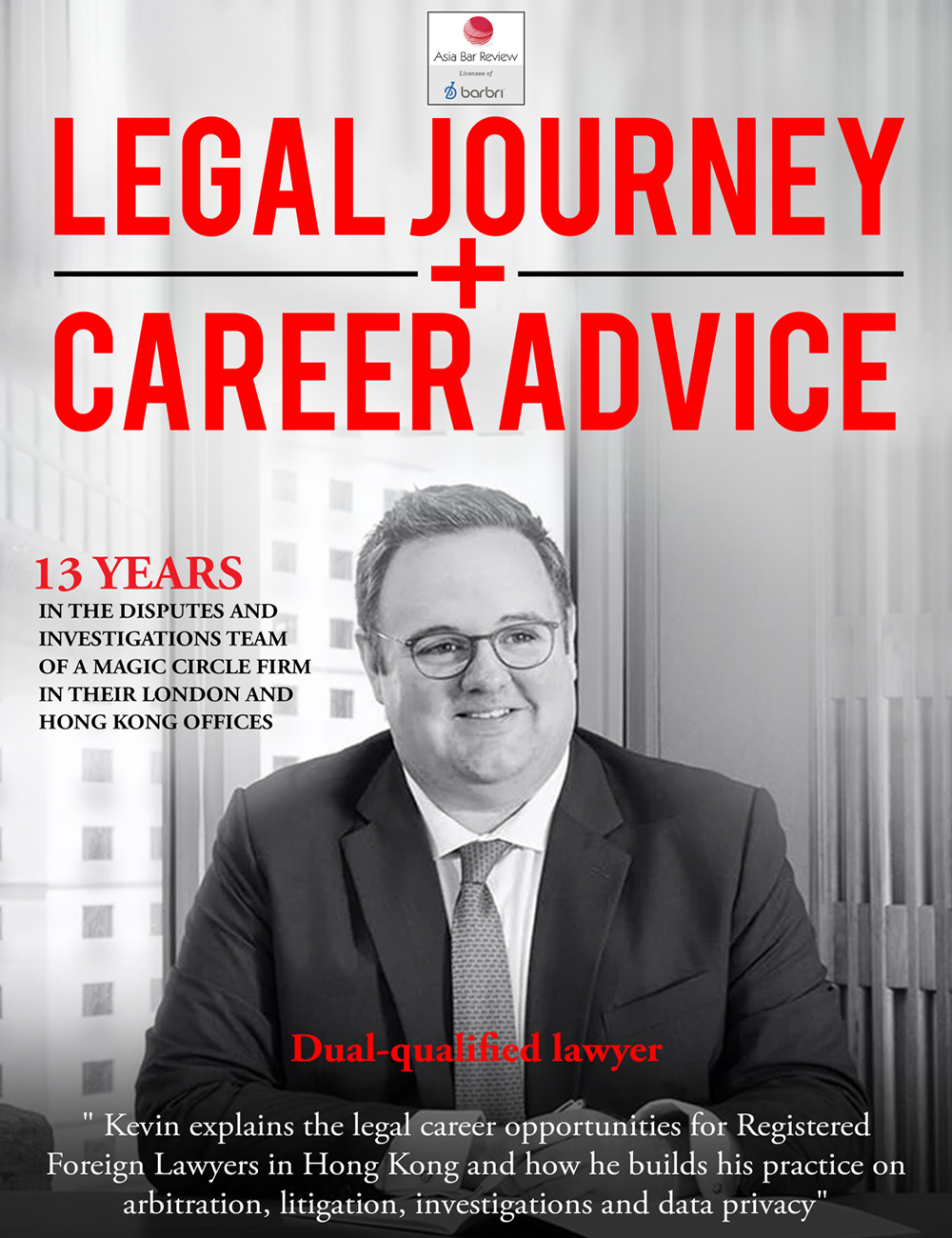Kevin explains the legal career opportunities for Registered Foreign Lawyers in Hong Kong and how he builds his practice on arbitration, litigation, investigations and data privacy
Q: How has being qualified in London, Wales and Hong Kong affected your legal career and what you see as being tedious excess on an international scale?
Thanks Aaron and hi everyone. So, in terms of my career, as Aaron said, I trained at Slaughter and May in London, so as part of that training contract process, which comes with many of the international firms, you get opportunities to do secondments. So, while I spent most of my training in London, I spent half of my antitrust seat in our Brussels office.=, where a lot of EU competition law action takes place. Then I spent 6 months in Hong Kong at the end of my training contract, which was what first whetted the appetite to be out here. I got the opportunity to come back here again as an associate, for a few months to cover a matter but, again, that was part of the nature of a firm like Slaughter and May. Then four years ago, an opportunity came up with the firm for me to relocate out here and focus on helping to grow the contentious practice of Slaughter and May in the Asia-Pacific and China region. So, it made perfect sense to me to come out here, both personal and professional point of view and have a change of scene. A bit like John said, when somebody is paying you to do something that is exciting, then it’s a bit of a no brainer to come and do it.
In terms of how that has helped my career, in an international firm or rather a firm that has offices in multiple jurisdictions, you get the opportunity to work on a lot of cross-border matters. So, for me as a disputes lawyer, that might involve say an arbitration or a piece of litigation, where you have parties across multiple jurisdictions. So, you are working with other offices or other firms to be able to advise the client and take the matter towards the hearing. And in investigations, you see the regulators working together, so their reach is global meaning you’re working with counsel in various jurisdictions. Also, the nature of the clients means that you’re working with people who might be headquartered in another country but they have an English law issue so you’re dealing with them from that point of view.
I think as a registered foreign lawyer, being out in Hong Kong, you have a lot of clients with English law issues and so they want somebody in this time zone to be able to advise on those issues in real time So, thinking about it from a data privacy point of view, an issue like the GDPR is a hot topic because of its extra-territorial reach, whereby it can apply to companies outside of Europe. A lot of clients here have business where they sell into Europe, meaning they had a lot of questions on the GDPR so it was great to be able to use my English qualification here in Hong Kong. And absolutely, like John said, part of the real value is the experience that you gain over time: even though I wasn’t always Hong Kong qualified, I was working on Hong Kong law matters or on other law matters with lawyers qualified in those jurisdictions, but bringing my experience to the table when working with those locally qualified lawyers. I think in a firm like Tanner De Witt, where we are an independent Hong Kong centred firm, we still deal with clients across the world who have Hong Kong law issues. For example, one of the matters that I’ve been working on today is an arbitration which happens to be seated here in Hong Kong (so the parties have chosen that the dispute will be heard in Hong Kong) but the parties are based in the US and China. So even though I’m in a Hong Kong centred firm now, we’re still dealing with international issues.
Q: All our panellists seem to move from the UK (or other Western countries) to the Asia Pacific. Is it possible to move the other way around?
When I was working in and with my previous firm’s London office, we were certainly open to recruiting people from other jurisdictions and bringing those relevant language and cultural skills into the team. So I think there are definitely opportunities. Obviously, there are other issues to consider, like local qualification, but that needn’t be a total impediment.
Q: When would a good time be to prepare a career internationally? Considering the needs for certain jurisdictions, is it earlier the better?
It’s important not to rush – in some jurisdictions you need a certain level of qualification in the home jurisdiction before you can requalify in the new jurisdiction. So I think it’s always something to have in the back of your mind, but I think for now you should focus on the firms that seem attractive to you now and the opportunities they offer now. Then make sure you take up the opportunities as and when they arise – in both John’s and my experience, we’ve had internal opportunities presented to us and it’s important to jump on them. In many firms, these will all be part of the training experience anyway.
2020 Fall Legal Career Conference Q&A session – Transcribe by FOO Hsien Li, Vera Quah and Yi Qin Wang


